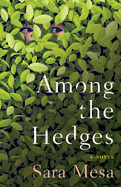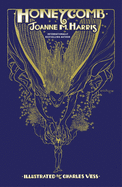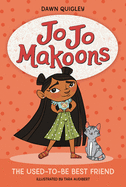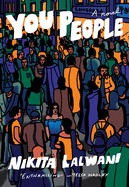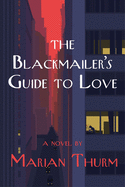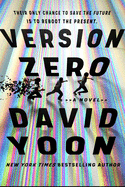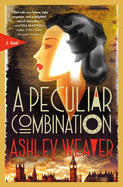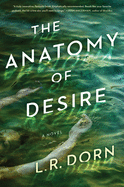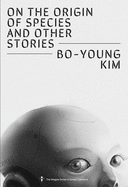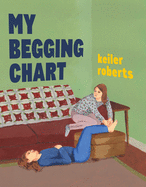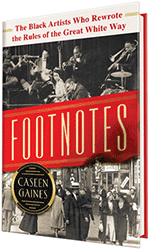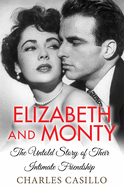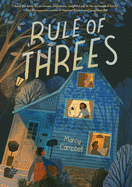Tuesday, May 25, 2021
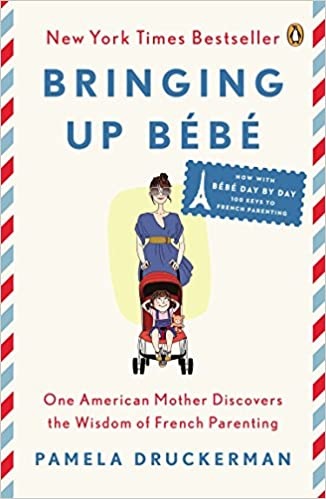 American expat Pamela Druckerman felt she was the only flustered parent amid a sea of serene, baguette-toting Parisian mothers. She shares all of the "wisdom of French parenting" she could glean in her entertaining and insightful Bringing Up Bébe (Penguin, $18). Though not all aspects of French parenting appealed to me, I was enamored by the idea of someday dining out on multi-course meals with my calm and serene toddler in tow, as French parents apparently do on a regular basis.
American expat Pamela Druckerman felt she was the only flustered parent amid a sea of serene, baguette-toting Parisian mothers. She shares all of the "wisdom of French parenting" she could glean in her entertaining and insightful Bringing Up Bébe (Penguin, $18). Though not all aspects of French parenting appealed to me, I was enamored by the idea of someday dining out on multi-course meals with my calm and serene toddler in tow, as French parents apparently do on a regular basis.
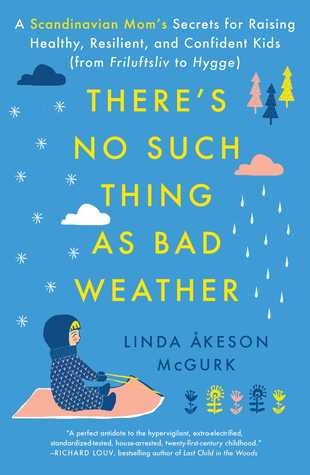 Looking for more insights into how to raise the little human who lives in my own house, I found nearly as many global parenting books as there are parenting styles. In There's No Such Thing as Bad Weather (Touchstone, $17), Swedish-born Lina Åkeson McGurk promises that the secret to raising healthy children is more time outdoors, year-round. Rina Mae Acosta and Michele Hutchinson put forth, in The Happiest Kids in the World: How Dutch Parents Help Their Kids by Doing Less (Experiment, $15.95), that what parents actually need to do is relax: less worrying and supervision, and fewer activities, yield happier kids--and happier parents. Meanwhile, in Battle Hymn of the Tiger Mother (Penguin, $17), Amy Chua set out to write a story about the benefits of raising children as Chinese parents do, in contrast to Western parents, and instead wrote about a "bitter clash of cultures" and her own journey through humility in parenting.
Looking for more insights into how to raise the little human who lives in my own house, I found nearly as many global parenting books as there are parenting styles. In There's No Such Thing as Bad Weather (Touchstone, $17), Swedish-born Lina Åkeson McGurk promises that the secret to raising healthy children is more time outdoors, year-round. Rina Mae Acosta and Michele Hutchinson put forth, in The Happiest Kids in the World: How Dutch Parents Help Their Kids by Doing Less (Experiment, $15.95), that what parents actually need to do is relax: less worrying and supervision, and fewer activities, yield happier kids--and happier parents. Meanwhile, in Battle Hymn of the Tiger Mother (Penguin, $17), Amy Chua set out to write a story about the benefits of raising children as Chinese parents do, in contrast to Western parents, and instead wrote about a "bitter clash of cultures" and her own journey through humility in parenting.
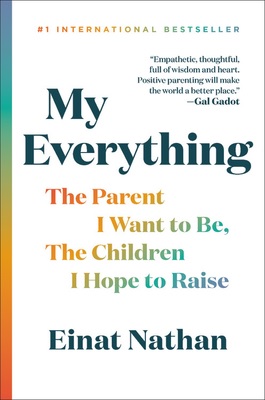 I almost set down My Everything: The Parent I Want to Be, the Children I Hope to Raise (Hachette Go, $28)--a bestseller in Israel--after the first few chapters; Einat Nathan's approach is very different from my own. But then I realized: I, like parents everywhere, can pick and choose what's right for me and my family, and raise a globally inspired human from the comfort of home. --Kerry McHugh, blogger at Entomology of a Bookworm
I almost set down My Everything: The Parent I Want to Be, the Children I Hope to Raise (Hachette Go, $28)--a bestseller in Israel--after the first few chapters; Einat Nathan's approach is very different from my own. But then I realized: I, like parents everywhere, can pick and choose what's right for me and my family, and raise a globally inspired human from the comfort of home. --Kerry McHugh, blogger at Entomology of a Bookworm
Among the Hedges
by Sara Mesa, transl. by Megan McDowell
Beyond familial bonds, is a relationship between an almost-14-year-old girl and a 54-year-old man possible? Intriguing Spanish writer Sara Mesa--who presented all manner of inappropriate relationships in Four by Four--continues to explore highly charged power dynamics in Among the Hedges, translated by award-winning Megan McDowell.
She's called Soon, as in "soon-to-be fourteen." Being "fifty-four now," the old man is exactly that--earning his Old Man appellation. Soon is truant, avoiding constant bullying by hiding daily among the hedges in a park a half-hour from home. Old Man just appears one day, intruding into her haven, speaking of birds, before he apologizes because "he talks too much" and abruptly leaves. But he returns the next day. And the days after. Soon, initially wary, shares a few fabrications but "stops lying out of laziness." After having "no one who listen[ed]... now she's at least found this man, Old Man, who only talks about birds and Nina Simone, and who never lies." Their weekday ritual expands to include snacks and drinks--and fractured secrets. Talk of "Sudden Urgent Transfer" of schools and even marriage leads to tragic consequences.
Obvious or predictable could never describe Mesa's narrative here. Her sly hints--especially when she repeats words like "made up," "fabricating," "lying"--are clearly meant to manipulate readers in various directions, right or wrong, truth or not. "She can't end up without a story to tell," Soon insists to herself--regardless of the potentially dangerous results. Mesa, meanwhile, prods, enables, challenges, maybe even misleads. Satisfaction--of sorts--arrives in Mesa's concluding "Part Two," which shrewdly reveals the bittersweet outcome beyond the hedges. --Terry Hong, Smithsonian BookDragon
Discover: Award-winning Spanish writer Sara Mesa brilliantly, unpredictably explores highly charged power dynamics between an almost-14-year-old girl and a 54-year-old stranger.
You People
by Nikita Lalwani
Nikita Lalwani's alternating narrators in her remarkable third novel, You People, seemingly have little in common beyond a shared place of employment: a London pizzeria with predominantly undocumented staff. Nia, a 19-year-old Welsh transplant escaping an abusive home life, was asked to leave Oxford University, where she'd remarkably gained entrance. Shan is a tortured Sri Lankan refugee, the son of a journalist whose name appears in the Wikipedia entry for "List of people killed by Sri Lankan government forces"; his mother "and all the others" also dead. Guilt haunts them both: Nia for abandoning her younger sister to their alcoholic mother; Shan for deserting his wife and son to escape alone.
While Nia waitresses, Shan cooks. Upstairs, their Singaporean boss, Tuli, seems to "play God," funding no-interest loans, provisioning the needy and reuniting families, but perhaps he's also running drugs, enabling trafficking, ignoring the law as necessary. His loyal employees willingly do "extra" work, including Nia and Shan, who both grow closer to Tuli--but at what cost?
Lalwani, an Indian immigrant raised in Wales, now living in London, made the Man Booker longlist with her first novel, Gifted. She seamlessly weaves her diverse background throughout these pages, creating an authentic contemporary London, a crossroads for international populations. Her characters are caught at the intersection of kindness and indifference, of whether to choose self-preservation or extend a helping hand. Writing in crisp, frank prose adorned with lyrical flourishes ("new voice... shorn of the Welsh wool"; "artifacts in her orbit"), Lalwani searingly exposes an urgent, universal story of humanity lost and (hopefully) found. --Terry Hong, Smithsonian BookDragon
Discover: Nikita Lalwani's magnificent third novel features two London pizzeria employees--one British, the other undocumented--and their enigmatic boss who just might be playing God with all their lives.
The Blackmailer's Guide to Love
by Marian Thurm
Relationships and marriages fraught with flaws and imperfections are consistent hallmarks of the always thought-provoking work of Marian Thurm (Today Is Not Your Day). Her seventh novel, The Blackmailer's Guide to Love, is set in 1978. A trio of young, sophisticated, upwardly mobile New Yorkers are embarking on their lives in post-Nixon Manhattan. "Suburban-bred innocent," Ivy League alumna and literary writer wannabe Mel Fleischer, 25, lands an entry-level job at a prestigious Madison Avenue magazine. Her boss, Austin Bloch, is a middle-aged, esteemed editor who works with some of the finest writers. However, that doesn't make his moral character exemplary, and Mel is put in the precarious position of covering for and hiding Austin's dalliances from his wife.
This is all new to Mel, who has "no idea how to navigate a universe where husbands and wives betray each other or snort coke with straws off glass tables." She shares her experiences with Charlie, her caring and supportive husband, a Manhattan psychotherapist. He is faced with his own dilemma in counseling Julia Meyerson, a young, divorced Ph.D. student who, unable to secure a teaching position, cares for an aging and infirm childless couple. Around the same time that Mel has one of her short stories accepted for publication by the New Yorker, doctor-patient lines start to blur for Charlie and Julia. Each character, on the brink of personal change, faces a crossroads.
Clever plot developments abound, and exquisitely drawn characters have their perceptions radically changed. Thurm's literary authority is on full display in this deeply engrossing and dramatically juicy novel. --Kathleen Gerard, blogger at Reading Between the Lines
Discover: A richly drawn, juicy love triangle ensnares the lives of three young, upwardly mobile sophisticates in post-Nixon Manhattan.
Mystery & Thriller
Version Zero
by David Yoon
David Yoon (Frankly in Love) makes his adult fiction debut with Version Zero, a fast-paced, smart technothriller set in the near future. It's the story of Max, the son of undocumented Salvadoran immigrants, who works for a Facebook-like company called Wren. Max, as a "Brown," is a bit of a diversity wunderkind in the "Whiteman" world of Wren, and as such is called to work on a super-secret project.
At first Max is thrilled to have hit the big league, but then he starts to question the morals of the project he's working on, whose entire goal is to mine the data of Wren users. He's immediately fired and blacklisted from finding another tech job, so with the help of his best friend, Akiko, an expert programmer, Max sets out to expose what's going on at Wren.
Yoon examines many things modern technological life takes for granted in a clever, satirical way, as Max, Akiko and the group of misfits they bring together try to re-create the Internet in a kinder way. Surprising no one, the retaliation against them is quick and severe. Exploring themes of privacy and privilege, and the responsibility of the average Internet user, Version Zero brings up thoughtful questions amid its frenetic energy. And, as the scope of Max's schemes broaden, he realizes that what he's doing puts everyone he loves at risk. When is protecting one's own circle more important than benefiting humanity at large? --Jessica Howard, bookseller at Bookmans, Tucson, Ariz.
Discover: In this fast-moving technothriller, a disaffected programmer tries to take down a huge social media company and meets with drastic retaliation.
A Peculiar Combination
by Ashley Weaver
Ellie O'Donnell has always been proud (if a bit conflicted) to be part of her family's safecracking operation. She knows it's morally questionable work, but it helps augment the earnings from her uncle's locksmithing business, and she enjoys the challenge of conquering a tricky lock. But when Ellie and Uncle Mick are caught robbing a house one night, she suspects they've been set up. Ashley Weaver begins an intriguing mystery series with the first of Ellie's adventures, A Peculiar Combination.
Weaver (A Deception at Thornecrest) keeps the English setting of her Amory Ames series, but moves to a different era: 1940, when most Londoners are waiting to see if the Nazis will invade. Ellie's cousins are both off doing their bit for the war, and Ellie and her uncle are keeping busy with work (both upfront and illegal). When they're apprehended after a seemingly routine jewel theft, Ellie is surprised to be offered a job in exchange for her freedom: helping Major Ramsey, a British intelligence agent, retrieve a set of crucial documents and switch them out for fakes.
Weaver builds a satisfyingly tricky plot while sensitively exploring the complex motives driving both Ellie and the major to do their work. Filled with vivid historical details, late nights under a London blackout and characters from all classes who aren't quite what they seem, A Peculiar Combination is a sparkling addition to Weaver's oeuvre and a highly enjoyable start to a new series. --Katie Noah Gibson, blogger at Cakes, Tea and Dreams
Discover: Mystery novelist Ashley Weaver's series launch set in 1940s London features a whip-smart safecracking heroine and satisfyingly tricky plot.
The Anatomy of Desire
by L.R. Dorn
Two women take a canoe out on a lake in California, but only one comes back--dead. The other disappears from the scene. Told entirely as a transcript of a true-crime documentary, L.R. Dorn's thought-provoking legal thriller The Anatomy of Desire follows a beautiful young fitness influencer whose ambitions burn more brightly than her smile.
Cleo Ray is a social media star with a handsome influencer boyfriend who has even more followers than she does. The couple has planned a camping retreat with friends to unplug from their electronic devices. Before she meets up with the group, Cleo just has one small task to take care of: break up with her secret girlfriend, Beck. The two go out on a lake to talk but don't return. Beck's drowned body is discovered hours later, with injuries to her face and head, while Cleo is nowhere to be seen. Police eventually find Cleo camping nearby with her friends, acting as if nothing has happened. She's charged with murder and put on trial, but Beck's killing might not be the only reason for which Cleo is judged by the small conservative community.
Though the transcript format creates a matter-of-fact tone in this modern take on Theodore Dreiser's An American Tragedy, Dorn (pseudonym for screenwriters Matt Dorff and Suzanne Dunn) manages to paint layered portraits of the main players, who resist clear labels of good and bad. As the trial progresses, readers may find their preconceptions challenged and their feelings flip-flopping regarding Chloe's guilt and moral character. And when the ending comes, it's a surprisingly poignant one. --Elyse Dinh-McCrillis, blogger at Pop Culture Nerd
Discover: A beautiful social media influencer is put on trial for murder in this gripping courtroom thriller.
Science Fiction & Fantasy
Honeycomb
by Joanne M. Harris, illus. by Charles Vess
With Honeycomb, the prolific Joanne M. Harris (Chocolat; Peaches for Father Francis), who has written fantasy, historical fiction, suspense, cookbooks and more, offers an enchanting collection of darkly delightful, imaginative fairy tales and parables of the modern world. (These stories began as a series on Twitter.) Illustrator Charles Vess (Stardust; Sandman) brings to life Harris's Silken Folk, "weavers of glamours, spinners of tales... whom some call the Faërie, and some the First, and some the Keepers of Stories," in richly detailed images.
In the world of Honeycomb, the Sightless Folk (regular humans) unwittingly often share space with the numerous and diverse Silken. "There are many doors between the worlds of the Faërie and the Folk. Some look like doors; or windows; or books. Some are in Dream; others, in Death." These 100 stories form a whole that is magical, fanciful, enchanting and occasionally nightmarish. In special moments, "all Worlds were linked, like the cells of an intricate honeycomb, making a pattern that stretched beyond even Death; even Dream," and the stories are likewise linked cells. Some act as allegories, as in "The Wolves and the Dogs," in which the Sheep elect a Wolf to protect them because at least he is honest. In "The Traveller," the titular character passes quickly by many delights in pursuit of his destination, which turns out less impressive than he'd hoped.
Completely engrossing, exquisitely inventive, brilliantly illustrated and thought-provoking, Honeycomb is a world, or Worlds, to get lost in. "Some of these tales have stings attached. But then, of course, that's bees for you." --Julia Kastner, librarian and blogger at pagesofjulia
Discover: Fairy tales for grown-ups, allegories, visions and horrors: these gorgeously illustrated linked stories are guaranteed to transport.
On the Origin of Species and Other Stories
by Bo-Young Kim, transl. by Joungmin Lee Comfort and Sora Kim-Russell
Seven stimulating short stories, plus a pithy "reflection" on breasts, comprise Kim Bo-Young's collection On the Origin of Species and Other Stories, translated from the Korean by Joungmin Lee Comfort and Sora Kim-Russell. Lauded as one of Korea's most prominent science fiction writers, Kim insists her stories "came into being without [her] consciously trying to turn them into SF.... It's only later that [she] found out that readers labeled them SF." That eschewing of such classification effectively summarizes Kim's genre-defying imagination as she intricately weaves history, romance, mystery, pop culture and, of course, strange science into her absorbing storytelling.
Homunculi, avatars, machines and maybe humans populate "Scripter," in which gaming and reality seem impossible to separate. In "Between Zero and One," previously published in the 2019 anthology Readymade Bodhisattva, Kim skewers Korea's relentless pressure-cooker school system through a student's suicide, her surviving mother--and time travel. Transformation for survival drives "An Evolution Myth," while mutating species challenge each other in "Last of the Wolves." Siblings attempt epistolary communication 28,000 light years apart in "Stars Shine in Earth's Sky." Most fascinating of the collection are the paired "On the Origin of the Species" in which robots contemplate the viability of organic biology, then face the consequences of creating life in "On the Origin of Species--And What Might Have Happened Thereafter."
Following the success of Kim's I'm Waiting for You and Other Stories, Kaya Press hopes to replicate Kim's "cult following," as described by the collection's discerning editor, Sunyoung Park. Inventive and unpredictable, Kim's fiction delivers both insight and provocation. --Terry Hong, Smithsonian BookDragon
Discover: Ranging from delightful to disturbing, Kim Bo-Young's inventive collection features seven label-defying, intricate stories-in-translation.
Graphic Books
My Begging Chart
by Keiler Roberts
In My Begging Chart, her seventh collection of autobiographical comics, Keiler Roberts (Rat Time) offers a view of domestic life that praises the mundane with a gentle poignancy and inimitable dry wit and humor. Unfolding in a series of vignettes, the book relates her life with her husband, Scott, and their daughter, Xia, as well as her art and her experience living with multiple sclerosis. She pays particular attention to her parenting foibles: when Scott chastises her for letting Xia eat ice cream in the car on the way to the dentist, she responds, "I told you I was having a transition year. This is my new life." This sort of droll sendup of the language of wellness is characteristic of the book's attitude toward the theme of self-improvement common in diaristic comics. Another: after describing to her therapist that she likes to visualize her thoughts as cicadas clinging to her, Roberts concludes, "It doesn't help at all, but I like visualizations."
Roberts's rough-hewn drawing style lends a sense of immediacy to her observations. She often gives the smallest moments the most room on the page, such as one in which she rests on the couch with her daughter reclining in her lap, reading. These scenes, along with those in which Roberts discusses the fatiguing effects of MS, are marked by stillness and quiet, and are among the most affecting in the collection. Candid and funny, My Begging Chart finds whimsy in the minutiae of everyday life. --Theo Henderson, bookseller at Ravenna Third Place Books, Seattle, Wash.
Discover: In this collection of autobiographical comics, Keiler Roberts documents the minutiae of everyday life--including parenting, art and disability--with poignancy and wit.
Nonfiction
Footnotes: The Black Artists Who Rewrote the Rules of the Great White Way
by Caseen Gaines
In 2016, Broadway saw an unusual revival: Shuffle Along, or, the Making of the Musical Sensation of 1921 and All That Followed. Back in 1921, as now, many high-profile theatrical productions featured the stories of white characters, played mainly by white actors, but both the original Shuffle Along and its revival offered something different. The musical revue, created by two comedians and a pair of accomplished musicians, was the first all-Black musical comedy to make it big on Broadway, and its success had far-reaching effects on race relations in the entertainment industry. In vivid and lively prose, author, teacher and pop culture historian Caseen Gaines digs into the history and impact of Shuffle Along and its creators in his engrossing, meticulously researched fifth book, Footnotes: The Black Artists Who Rewrote the Rules of the Great White Way.
Gaines (We Don't Need Roads) begins with a pivotal moment from the show's 1921 opening night: "Love Will Find a Way," a duet performed by two of Shuffle Along's Black characters. In vaudeville and across the entertainment industry, Black actors were often forced to play stereotypes for laughs, feeding white audiences familiar jokes about uneducated "Negroes" who couldn't do simple math or string together a coherent sentence. While the plot of Shuffle Along (involving a crooked mayoral race) did include some of these moments, the show also gave its Black actors, musicians and dancers a chance to perform at a greater dramatic range. But the show's creators feared that white audiences would not accept a song, much less an entire show, that portrayed Black people as complex human beings capable of real thoughts and feelings.
To everyone's surprise, the audience not only enjoyed the syncopated jazz music and genuine love story, but roared for more, kicking off Shuffle Along's successful run on Broadway and its subsequent national tour. The show was plagued by constant financial troubles, though: the cast often went without pay, and the showrunners struggled to meet travel costs and other expenses. The economic and social effects of World War I, Prohibition and the Great Migration of Black Americans to northern states--among other forces--also affected the show's fortunes. But for its creators and participants, it helped form a vision for what was possible: a future America where Black actors could play authentic roles rather than squeezing themselves into narrow stereotypical boxes.
Footnotes is the story of one musical, but it is also a group biography of four men who were only one generation removed from slavery, whose lives and careers spanned rapidly changing times. Gaines charts the personal histories of the show's architects: comedians Flournoy Miller and Aubrey Lyles, and musicians Noble Sissle and Eubie Blake. He delves into each man's origin and career, recounting the success Miller and Lyles found together in vaudeville, and the musical adventures of Sissle and Blake, which took them from New York's jazz venues to playing at French military bases during World War I. Though none of the four had ever written a musical or performed on Broadway, they teamed up to conceive (and find funding for) something entirely new with Shuffle Along. They rented a theater on West 63rd Street--not in Manhattan's theater district, but close enough--and hammered out a book and a score that fused comedy, jazz, romance and plenty of dancing. The show would go on to launch the careers of performers--among them Florence Mills, Paul Robeson and a very young Josephine Baker--as well as open doors for many of its other cast, crew and orchestra members.
Drawing on extensive historical and archival research, Gaines holds up the show's creators as examples of Black excellence in a world designed to trap them in failure. He captures their complicated experiences and interpersonal dynamics, and draws sharp contrasts between the treatment of Black people in the U.S. and the accolades they received abroad. He also records the showrunners' struggles along with their triumphs: the way the show never quite managed to balance its books, the moments where the show's actors and writers resorted to blackface to get a laugh from the audience, the blatant colorism (onstage and off) that elevated light-skinned Black people above their darker counterparts. Judged by the standards of today, much of the show's original script reads as tone-deaf or even offensive. But a century ago, the musical provided a mix of satire, genuine emotion and familiar (if shopworn) jokes that drew in audiences and kept the show touring until 1924.
The book's last chapters deal with the show's several revivals, most of which were unsuccessful (until the 2016 remake) and the later careers of the showrunners. Gaines also muses on the ways in which Black actors and artists have still struggled to make a home for themselves on Broadway. In a moment of national conversation about systemic racism in the U.S., the story of Footnotes is not only compelling but perfectly timed. --Katie Noah Gibson
Biography & Memoir
Elizabeth and Monty: The Untold Story of Their Intimate Friendship
by Charles Casillo
This dual biography of Elizabeth Taylor and Montgomery Clift by Charles Casillo (Marilyn Monroe: The Private Life of a Public Icon) is so jammed packed with sex, pill-popping, alcoholism, affairs, breakdowns, suicide attempts and multiple brushes with death that most readers will want to read it in one greedy, high-caloric gulp. Readers may come for the nonstop scandals but what will keep them reading is Casillo's deeply empathetic and nuanced portrait of two Hollywood stars who forged a loving and loyal friendship.
The two met while filming 1951's A Place in the Sun, and their chemistry was striking. Clift was gay and Taylor was a teenage virgin, but onscreen they generated heat. Off-screen, they formed a strong friendship. "She feels like the other half of me," Clift said. The two were reunited six years later in Raintree Country. Midway through filming, Clift was in a near-fatal car accident. Taylor saved his life by climbing inside the wrecked car and pulled broken teeth from his throat. The accident partially paralyzed his face and left him addicted to alcohol and painkillers. When he made The Misfits in 1960, he was in such bad shape, no film company would insure him. Costar Marilyn Monroe said Clift was "the only person I know who is in worse shape than I am."
Both Taylor and Clift have numerous biographies devoted to them, but Casillo's dual biography admirably laces their dramatic lives together. Much like A Star Is Born, with one star rising as the other declines, these two life stories make riveting reading. --Kevin Howell, independent reviewer and marketing consultant
Discover: Charles Casillo's dual biography of Elizabeth Taylor and Montgomery Clift is the movie star bio of the year, told with empathy and insight.
Children's & Young Adult
Jo Jo Makoons: The Used-to-Be Best Friend
by Dawn Quigley, illus. by Tara Audibert
A plucky Ojibwe first-grader worries over friendships, her artistic chops and a deflating cat in the charming #OwnVoices series starter, Jo Jo Makoons: The Used-to-Be Best Friend.
Josephine "Jo Jo" Makoons Azure is a spunky seven-year-old resident of a fictional reservation belonging to the Pembina Ojibwe, and a proud Native child. In eight short, accessible chapters, Jo Jo schedules a veterinarian's visit for her cat Mimi (her "home best friend"), submits her art for the school yearbook and deals with the recent lunch table abandonment of her "school best friend," Fern. Meanwhile, Jo Jo strives to be friendly, as her kokum (grandma in Michif) teaches, while struggling with emotional vulnerabilities that ring painfully true.
Dawn Quigley (Apple in the Middle; contributor to Ancestor Approved), a citizen of the Pembina Band of Ojibwe, delivers savvy observations that subtly educate readers about Ojibwe culture, heritage and community. Michif and Ojibwe words appear regularly and are italicized only once, as Jo Jo defines or enunciates them. Quigley's snappy humor and short paragraphs suit the early chapter-book format, while front- and backmatter affirm Indigenous readers and support non-Native children. Wolastoqey/French filmmaker, cartoonist, animater and artist Tara Audibert's charismatic work perfectly complements Jo Jo's animated disposition. Cartoon-style caricatures feature warm eyes and generous smiles, rendering each character distinctly. Grayscale spot art and full-page illustrations include Ojibwe details like a turtle calendar in the classroom and floral motifs throughout.
Jo Jo's magnetic personality and liberal humor should endear her immediately to readers struggling to sort out their own worlds--she is sure to be young readers' new "book best friend." --Kit Ballenger, youth librarian, Help Your Shelf
Discover: An Ojibwe girl sorts out friendship struggles in a hilarious series starter from #OwnVoices creators.
Rule of Threes
by Marcy Campbell
Kids in middle-grade novels tend not to have it easy. Even so, in Rule of Threes, Marcy Campbell (Adrian Simcox Does NOT Have a Horse) comes up with a real humdinger of a challenge for the endlessly sympathetic Maggie Owens, her 12-year-old narrator: Maggie learns that she has a half brother one year her senior, the product of her father's extramarital affair.
Tony's arrival in Maggie's life--and home (Tony's mom is in drug rehab so he's staying with the Owens family)--compounds her other problems: adjusting to middle school and dealing with her beloved maternal grandmother's mental decline. To take her mind off her troubles, Maggie throws herself into her school's Spirit Week decorating contest, but one of her friends slated to help is acting weird--yet another complication.
Rule of Threes works some time-tested middle-grade-novel themes--coping with a new school, coming to terms with parents' flaws, realizing that the perfect family doesn't exist--but the book's knockout premise is entirely Campbell's. Readers will be a step ahead of Maggie at times, and her behavior in a dramatic late-in-the-game scene may test credulity but, fortunately, not the reader's affection for her. Throughout this meticulously crafted novel, Maggie finds comfort in the before-and-after photos that she sees in design magazines, not realizing that her observation can apply to her reconstituted family: "It didn't matter how messy a 'before' was, because an 'after' was coming, and it would be awesome." --Nell Beram, freelance writer and YA author
Discover: In this carefully crafted middle-grade novel, a girl finds her life upended when she learns that she has an older half brother--the product of her father's extramarital affair.


